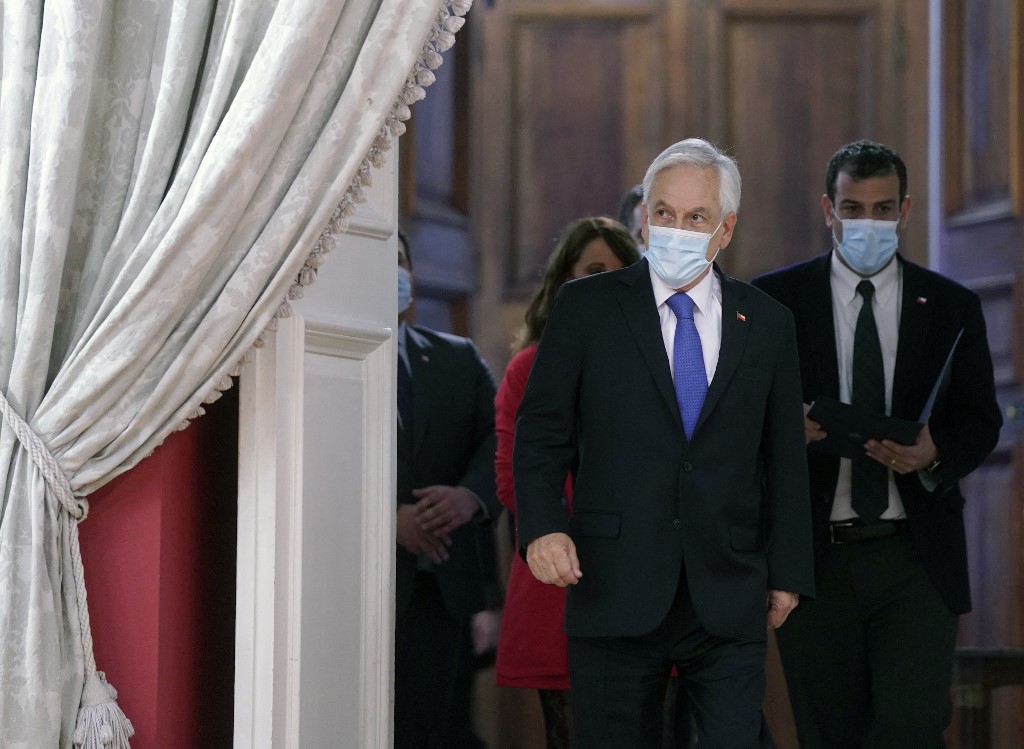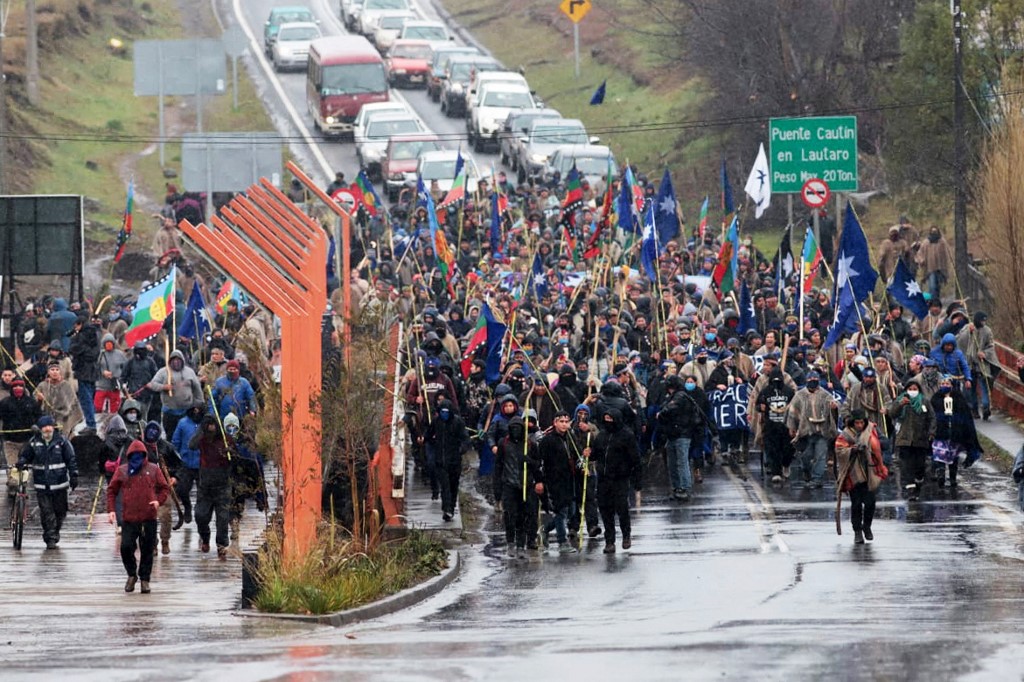

SANTIAGO, Chile (AFP) Chilean President Sebastian Pinera on Tuesday announced a state of emergency and deployed troops to two southern regions where clashes have broken out between Mapuche indigenous people and security forces.
The Mapuche are demanding the restoration of their ancestral lands and self-determination.
“We have decided to call a state of exception” in four provinces of the southern regions of Biobio and Araucania and the deployment of troops to help control “the serious disturbance of public order” there, Pinera said in a speech.
The billionaire right-wing president addressed the nation on a controversial national holiday that marks the “discovery” of the Americas by Christopher Columbus.
It is a day in history that is viewed as a disaster by many indigenous peoples throughout the Americas due to the colonization that followed.
Pinera, 71, said that the four provinces in question have seen “repeated acts of violence linked to drug-trafficking, terrorism and organized crime committed by armed groups,” and that innocent civilians and police officers have been killed in the violence.
The state of exception is initially due to last two weeks in the provinces of Biobio and Arauco in the Biobio region, and in Malleco and Cautin in La Araucania.


The Mapuche are Chile’s largest indigenous group numbering 1.7 million out of the country’s 19 million population and live mostly in the south.
Their leaders are demanding that land currently owned by farms and logging companies be restored to them.
The lack of a solution to Mapuche demands has prompted radical groups to carry out attacks on trucks and private property over the last decade.
One person was killed and 17 injured on Sunday when clashes broke out in Santiago between security forces and protesters marching for Mapuche autonomy.
Possible escalation
Political analyst Lucía Dammert criticized Pinera’s decision, saying that the deployment of troops could further intensify the Mapuche conflict.
“The government has been unable to generate an effective and fair policy to solve the problems that exist in Araucania,” Dammert, a professor at the University of Santiago, told AFP. She added that sending troops to the region could lead to “an escalation of violence.”
But Luciano Rivas, the ruling party’s governor of Araucania, backed the deployment saying there is “a very deep security crisis” in the region.
“Today we are living in a very complex situation where the police are overwhelmed by groups with heavy caliber weapons,” Rivas told CNN Chile.
© Agence France-Presse
